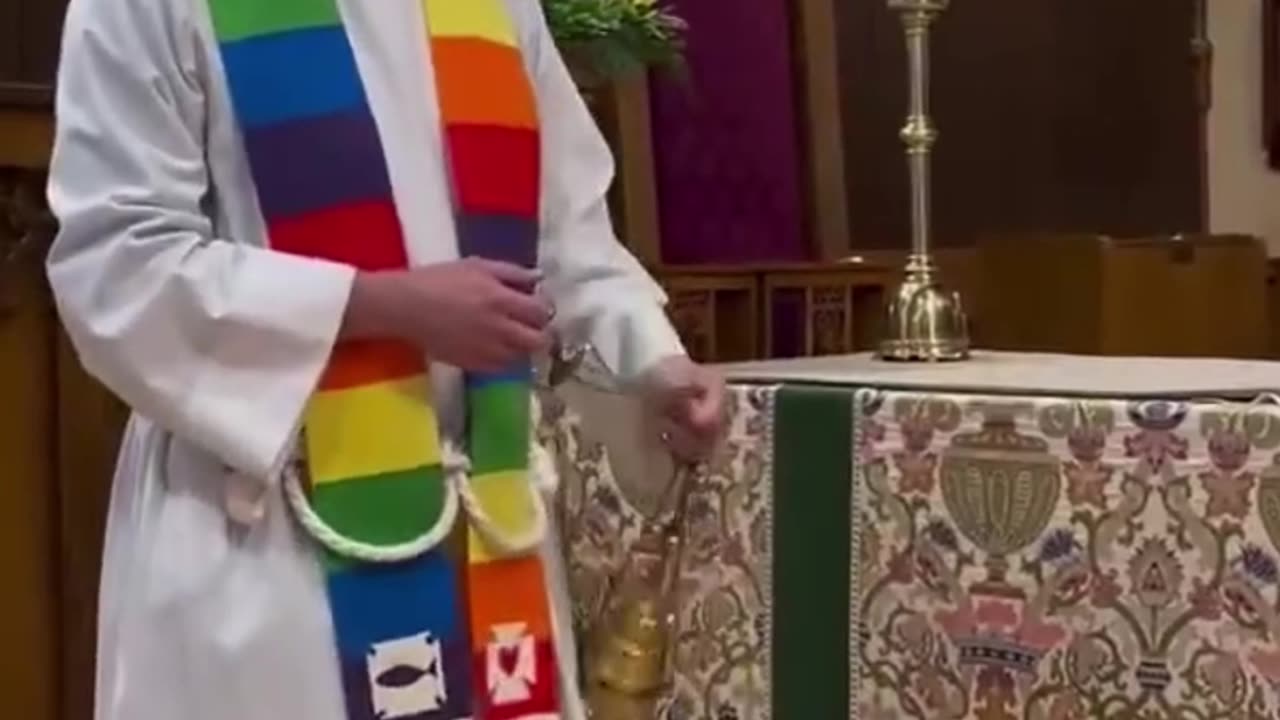Premium Only Content

The degeneration of the Episcopal Church
"We’re Episcopal priests. Of course we dress sharp on Sundays.
I’m an Episcopal priest. Of course we’ll do your gay wedding.
I’m an Episcopal priest. Of course women can be priests.
I’m an Episcopal priest. Of course I offer free walk-in therapy all day.
We’re Episcopal priests. Of course we know your pronouns.
We’re Episcopal priests. Of course we’re super serious.
We’re Episcopal priests. Of course we wear the collar every day.
I’m an Episcopal priest. Of course we set up fun kids’ zones during worship.
I’m an Episcopal priest. Of course we love incense."
The Episcopal Church, a branch of the Anglican Communion in the United States, has been at the center of intense controversies in recent decades due to its progressive stance on issues such as same-sex marriage and the ordination of women.
Same-Sex Marriage
The Episcopal Church has been one of the most LGBTQ+ inclusive Christian denominations. In 2003, it sparked international uproar by consecrating Bishop Gene Robinson, the first openly gay bishop in a same-sex relationship. This led to a split with conservative factions within the global Anglican Communion. In 2015, after years of internal debate, the Episcopal Church officially approved same-sex marriage in all its dioceses, further straining relations with more traditional Anglican churches, especially in Africa and Latin America. As a result, some bishops and parishes broke away from the Episcopal Church and formed new conservative church structures.
Ordination of Women
The ordination of women has also been a source of division. Although it began in the 1970s, it was not officially recognized until 1976, when the Episcopal Church formally approved the ordination of women to the priesthood. In 1989, Barbara Harris became the first female bishop in the Anglican Communion. This move faced opposition from conservative sectors, some of which left the church. Nevertheless, the Episcopal Church has remained committed to gender equality in ministry.
Impact
Both decisions—the support for same-sex marriage and the ordination of women—have redefined the Episcopal Church’s identity as an inclusive and progressive denomination. However, they have also led to internal divisions and conflicts with other Anglican churches worldwide, which view these practices as contrary to traditional Christian doctrine.
-
 0:50
0:50
Gateway Hispanic
1 day agoA white woman cries at the African American museum in Kentucky
3 -
 14:42
14:42
Professor Gerdes Explains 🇺🇦
2 hours agoThis ONE SENTENCE from Putin Guarantees a Long War
17 -
 19:05
19:05
Sponsored By Jesus Podcast
2 days agoI Lost the World But Gained My SOUL | Freedom in Christian Suffering
9.26K3 -
 14:47
14:47
Dr. Nick Zyrowski
15 days agoFasting Is THE Cure - NO FOOD FOR 3 DAYS Completely Heals You!
6.97K9 -
 LIVE
LIVE
ROSE UNPLUGGED
1 hour agoClimate Fatigue: Is the Whole World Feeling It?
72 watching -
 2:01:24
2:01:24
The Charlie Kirk Show
2 hours agoBiblical Borders + The Illegal Superintendent + Shutdown Fever | Deace, Homan | 9.30.2025
184K43 -
 LIVE
LIVE
Badlands Media
11 hours agoGeopolitics with Ghost Ep. 42
1,207 watching -
 2:01:33
2:01:33
Right Side Broadcasting Network
3 hours agoLIVE REPLAY: President Trump Makes an Announcement - 9/30/25
108K30 -
 1:56:03
1:56:03
MattMorseTV
4 hours ago $11.16 earned🔴Trump's Oval Office DECLARATION.🔴
59.6K39 -
 1:27:04
1:27:04
Simply Bitcoin
3 hours ago $1.19 earnedIs $1.6B about to HIT Bitcoin TODAY?! (FTX SAGA ALMOST OVER!) | EP 1343
23K5